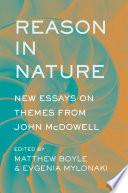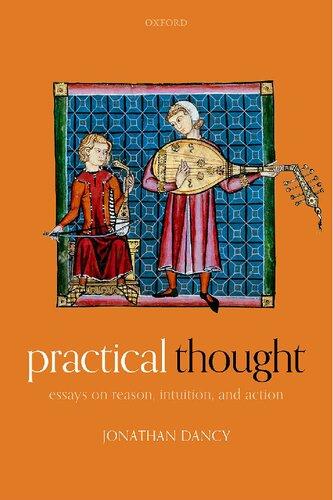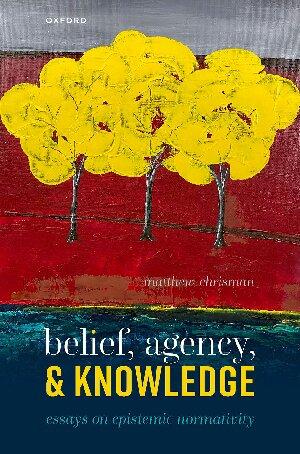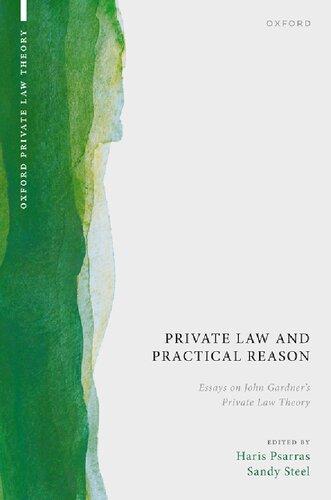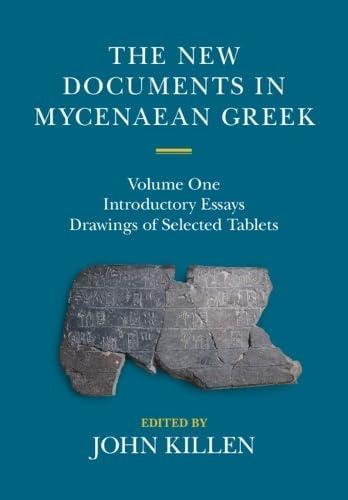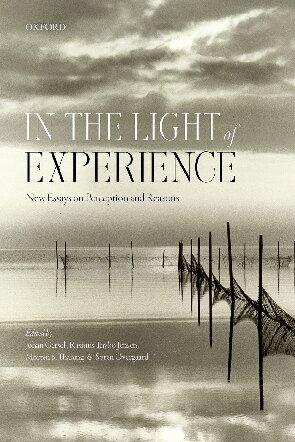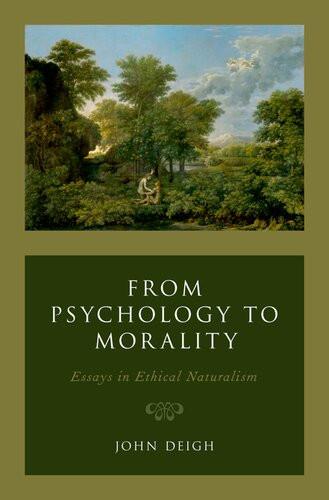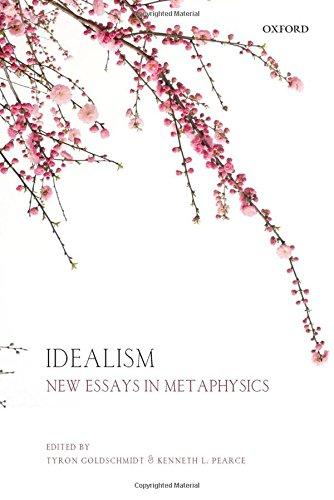Introduction
Matthew Boyle and Evgenia Mylonaki
John McDowell is widely recognized as one of the most influential anglophone philosophers of the last half century. He has made seminal contributions to a remarkably wide range of fields: to the philosophy of mind and perception, as the most prominent advocate of a “conceptualist” view of perception and as one of the subtlest thinkers about the significance of “content externalism” for our understanding of mind; to epistemology, as one of the first and most power f ul advocates of the “disjunctivist” conception of how perception warrants belief; to the philosophy of language, as one of the founders of the “neo-Fregean” program for reinterpreting key ideas from Frege in light of post-Tarskian semantics; and to ethics, as one of the leading figures in the contemporary revival of Aristotelian ethics and as a power f ul critic of rule-based ethical theories, of arguments for ethical subjectivism and “anti-realism,” and of forms of motivational and justificatory “internalism” that threaten to rule out the possibility of encounters with hitherto unrecognized forms of value. He has also made groundbreaking contributions to the study of the history of philosophy, particularly to our understanding of Plato, Aristotle, Kant, Hegel, and Wittgenstein. Each of these interventions has had a deep and
lasting impact, transforming the terms in which philosophical issues are discussed and giving rise to debates that continue to the present day.
McDowell’s work in all t hese areas has received extensive discussion, but the present volume grows out of our conviction that this discussion has not always been as broadly or as deeply conceived as it ought to be.1 Much of McDowell’s work has taken the form of essays intervening in ongoing debates. Even his landmark Mind and World presents itself, in significant part, as an intervention in a specialized debate in the philosophy of perception, and has been received as such. 2 As a result, much of the conversation generated by McDowell’s work has focused on its significance for specific debates, and as some of these debates have died down, as academic debates are apt to do, his contributions, though still hailed as groundbreaking, have at times been treated as surpassed. The pre sent volume seeks to make a case that t here is a dimension of McDowell’s work that is detachable from the specific controversies to which it originally belonged, and whose importance has not yet been fully appreciated. o u r aim is thus to urge a renewed and more open- ended reckoning with McDowell’s work, one that considers how its central themes transcend both their original context and the limitations of current discussions on some of these issues.
A lthough the topics on which he has written are diverse, t here is an evident common thread r unning through McDowell’s work, namely, its overarching concern with the transformative significance that reason has for human lives, and with the question of how this significance can be acknowledged without simply disregarding the fact that we are no more than natural beings, whose capacities for free thought and action must be understood as rooted in our animal nature. McDowell’s distinctive perspective on this topic is aptly expressed in a brief statement he wrote to accompany his picture in a volume of photog raphs of philosophers by Stephen Pyke:
My main concerns in philosophy centre on the effects of a metaphysical outlook into which we easily fall, at the point in the history of thought that we occupy. This outlook might be called naturalism or scientism. I believe it tends towards a distortion of our thinking about the place of mind in the world: the damaging effects show up not only in metaphysics itself, but also (for instance) in reflection about language, and in the philosophy
of value and action. The task of philosophy, as I see it, is to undo such distortions. 3
The themes mentioned in this remark are present throughout McDowell’s work: the idea that many of the deepest and most contentious disputes in philosophy arise out of difficulties about understanding the relationship between the first-p erson perspective of rational beings on their own lives and the third-person or “sideways on” perspective on human beings adopted in natu ral science; the thought that t hese disputes are not inevitable, but the product of an exaggerated, “scientistic” conception of what a scientific outlook on human beings requires; and the conviction that it is the task of philosophy to show us how to understand ourselves as rational and yet natu ral beings without placing t hese two aspects of ourselves in opposition.
The aim of the present volume is to draw out this unifying perspective underlying McDowell’s diverse contributions to philosophy and to consider how ideas that grow out of his work might contribute to ongoing debates in twenty-first-century philosophy. The contributors represent a mix of longtime interlocutors, former students, and other contemporary philosophers who have taken up themes from McDowell’s work. The topics of the essays are diverse, but the volume is unified by a shared concern with the place of reason in nature and by the conviction that it is worth returning to McDowell’s writings on these topics, not just in the context of the discussions to which they originally contributed, but in a forward-looking spirit, with a view to identifying questions that remain open and thoughts that bear on recent and developing debates. The purpose of this introduction is briefly to introduce some main themes of McDowell’s work on this topic, as a way of framing the contributions of the eleven essays that follow.
1. Additive vs. Transformative Conceptions of Rationality
A long philosophical tradition, dating back to the ancient Greeks, defines human beings as rational animals. This definition contains a problem, however, that any sympathetic account of human cognition must resolve: What is the relationship between our rationality (that is, our capacity to reflect on what to think and how to act) and our animal nature (specifically,
the capacities to perceive and act upon our environment that we share with nonrational animals, and that provide our rational powers with material on which to reflect)? Rationality is often figured as the capacity to “step back” from the forces that dominate the lives of nonrational animals—t heir instinctive tendencies to react to what they perceive and to pursue what they desire— a nd to take a critical perspective on t hese forces and tendencies.4 But how exactly should we think of the relationship between our brute tendencies to react to what we perceive and pursue what we desire on the one hand and our rational capacity to reflect on reasons on the other hand? Does each of us r eally have, as it were, a “mere animal” living within them that yearns to leap ahead to belief or action, but which their rational powers must discipline? o r i f this “Platonic” picture is too crude, what shape would a more satisfactory one take?5
Many cont emporary accounts of human cognition and action, although subtler and more sophisticated than the one just sketched, are committed to some form of the “Platonic” picture. They hold that our human capacities for cognition and action are founded on capacities for perception and voluntary activity of essentially the same kind as t hose possessed by nonrational animals, and that our special capacity for rational reflection supervenes on t hese as a further, distinct power. one example of such an additive conception of human cognition, which figures prominently in McDowell’s own discussion, is Gareth Evans’s account of human perception. According to Evans,
We arrive at conscious perceptual experience when sensory input is not only connected to behavioral dispositions perhaps in some phylogenet ically more ancient part of the brain—but also serves as the input to a thinking, concept- applying, and reasoning system; so that the subject’s thoughts, plans, and deliberations are also systematically dependent on the informational properties of the input . . . o f course the thoughts are not epiphenomena; what a conscious subject does depends critically upon his thoughts, and so there must be links between the thinking and concept-applying system, on the one hand, and behav ior, on the other . . . Further, the intelligibility of the system I have described depends on there being a harmony between the thoughts and the behav ior to which a given sensory state gives rise.6
What makes Evans’s account of “conscious perceptual experience” count as additive is that he conceives of such experience as the product of the linking of two distinct systems, a primordial system that connects sensory input with behavioral dispositions and a reasoning system that supervises this connection and intervenes when the primordial response is problematic. The primordial system is, in effect, the “lower animal” in us, whereas the reasoning system represents our rationality, and Evans’s way of conceiving of the relation between t hese two commits him to the idea that the addition of rationality does not alter the primordial system itself, although it alters the context in which it operates.
o ne impor t ant theme in McDowell’s work is the rejection of this additive conception of the relationship between the capacities we share with other animals and our rationality, which distinguishes us from them. Commenting on Evans, he writes that
if we share perception with mere animals, then of course we have something in common with them. Now t here is a temptation to think it must be possible to isolate what we have in common with them by stripping off what is special about us, so as to arrive at a residue that we can recognize as what figures in the perceptual lives of mere animals . . . But it is not compulsory to attempt to accommodate the combination of something in common and a striking difference in this factorizing way: to suppose our perceptual lives include a core that we can recognize in the perceptual life of a mere animal, and an extra ingredient in addition . . . Instead we can say that we have what mere animals have, perceptual sensitivity to features of our environment, but we have it in a special form.7
on t he alternative McDowell proposes here, our rationality does make an essential difference to our perceptual sensitivity to our environment: it gives us a “special form” of such sensitivity, one whose operations are themselves informed by our rationality. If this is right, then our rational capacity to learn about our environment through perception cannot be accounted for in the additive style. For if our human perceptual sensitivity to our environment cannot be explained without reference to our rationality, then our rationality must be thought of as transforming our perceptual powers themselves, not just the context in which they operate. Hence this conception of the relationship between our rationality and our
perceptual capacities can be called transformative. o n the generalized transformative view, our human cognitive capacities in general—not just our perceptual capacities, but also our capacities for motivation, bodily action, and so on—a re themselves transformed by our rationality. 8
Many of the essays in this volume engage with this transformative idea, whether by exploring its consequences, criticizing McDowell’s development of it, or arguing for its extension to new domains. Two views shared by many of the authors in the volume are that (1) the interest of this aspect of McDowell’s standpoint has not yet been fully appreciated, and (2) we can question the details of McDowell’s development of the transformative idea while affirming the point of principle that underlies it.
2. Nature and “Second Nature”
one central theme in McDowell’s work has been that a main obstacle to understanding how our rationality transforms our animal nature is a “constriction” that our idea of nature has under gone u nder the influence of modern natural science.9 While agreeing that a sane philosophy of mind must not represent the human mind as something super n atural, he has argued that we need not accept the widespread view that “naturalism” requires us to understand minds as operating according to laws of the kind studied in the natu ral sciences (roughly: laws that hold without exception and that recognize no distinction between cases where t hings go well and cases where they go badly). A significant part of McDowell’s writing has been devoted to criticizing constricted conceptions of what a “naturalistic” understanding of the human mind must involve, and to exploring what shape a more liberal naturalism might take. The essays in Part I of the present volume, “Nature and ‘Second Nature,’ ” take up these topics, approaching McDowell’s views in both a critical and a constructive spirit. one question that arises for a transformative conception of rationality concerns how to conceive of the dawn of full rationality that comes with the mastery of a first language and the initiation into a human culture. For while all of us are born human beings, it seems that none of us are born as fully rational animals: we seem rather to become fully capable of exercising our rationality in learning our first language(s) and being initiated into a
more general understanding of the possibilities of a human life embodied in one or more par ticular human cultures. In the context of a transformative conception of rationality, however, this observation raises a problem: if the presence of rationality categorically transforms our capacities for perception and action, how can we understand the pro c ess by which we pass from the initial, less-t han-f ully rational state in which we all presumably begin as infants to the l ater state in which they are fully informed by our rationality? This cannot be an instantaneous, magical transformation: it must take place gradually, through pro c esses of a recognizably natu ral kind. How, then, can we understand it?
Hannah Ginsborg’s essay “Skepticism and Quietism about Meaning and Normativity” takes up one aspect of this question, namely, how, while respecting the spirit of McDowell’s transformative conception of reason, we might conceive of a child’s acquisition of their first language. She approaches this question via Wittgenstein’s famous remarks on rule following in his Philosophical Investigations.10 In a series of influential essays on t hese remarks, McDowell has argued that, although Wittgenstein’s discussion might initially seem to pose a paradox about how rule following is possible, the moral of the discussion is ultimately that this paradox dissolves once we give up a dubious and dispensable conception of what grasping a rule must consist in.11 Against this, Ginsborg argues that t here is a dimension of the rule-following problem that McDowell’s “quietist” response does not address, namely, how a child can learn to produce behav ior that is in accord not with their understanding of a rule, but simply with previous rule-following behav ior—t heir own and that of others. This is, in effect, a problem about the very possibility of learning a first language, and Ginsborg argues that it can be addressed only by recognizing a kind of “primitive normativity” more basic than the normativity of rule following. She also argues that the recognition of such normativity is consistent with a deeper appreciation of the spirit of McDowell’s transformativist standpoint.
Michael Thompson’s “Forms of Nature: ‘First,’ ‘Second,’ ‘Living,’ ‘Rational,’ and ‘Phronetic’ ” takes up the question of how the presence of reason transforms human nature from a di ffer ent perspective, via a consideration of the role that facts about our nature as human beings can play in our ethical reflection. McDowell’s work has played a major role in
the revival of an Aristotelian approach to ethics, which places the idea of the possession of various virtues, rather than the grasp of a framework of general rules, at the center of ethical theory.12 However, he has criticized another aspect of (what is widely thought to be) the classical Aristotelian approach to ethics, namely, the idea that the grounds on which certain traits count as virtues for us can be explained by appeal to facts about the nature of the biological kind, Homo sapiens.13 According to McDowell, reference to merely biological facts about our nature in an account of why a virtuous agent should act in a certain way would import into our ethical reflection considerations that are of the wrong kind to engage our capacity for reasoned deliberation about how to live. Thompson replies, on behalf of the classical Aristotelian approach, that this criticism takes the sense in which our rationality transforms our biological nature insufficiently seriously. ou r rationality does not merely appear in the form of a “second nature” that arrives with our acquisition of a first language and a human culture—as some of McDowell’s remarks on this topic can suggest.14 It belongs essentially to our first, biological nature to live our lives through the exercise of reason, and this implies—so Thompson argues—t hat the crucial aspects of our human nature w ill be known to us not as mere observed regularities about the biological species Homo sapiens, but as facts an understanding of which is internal to our capacity for rational deliberation itself.
on t he resulting view, we might say, our rationality “transforms” our animal nature, not in the sense that we begin our lives as mere animals, whose animality is then transformed by the attainment of full rationality. Rather, the animality of human beings is always a distinctively rational animality, and although it is true that we come to fully actualize our nature as rational animals in learning a first language and being introduced into a human culture, t here is no point in our development at which our cognitive and active capacities are “merely animal” capacities. W hether fully developed or still incipient, they are always the capacities of a rational animal, and must be understood as such. So, when we say that our rationality “transforms” our animality, this can mean only that our kind of animal capacities are essentially rational and thus differ in form from the cognitive capacities of a nonrational animal—not that t here is some actual transition, in the life of a human being, between having capacities of the one kind and having capacities of the other.15
3. Reason in Perception and Action
The essays in Part II, “Reason in Perception and Action,” turn from a consideration of the general relationship between human reason and human nature to more specific questions about how the presence of rationality transforms the capacities for perception and action that we share with nonrational animals. McDowell famously argues that the perceptual experience of rational animals must have “conceptual content,” and thus must be structurally different from the perception of nonrational animals.16 This claim has been widely discussed and frequently criticized, and McDowell himself has made impor t ant revisions to his original formulation of it.17 The essays in the second part of the volume explore the motivations for this idea, what is crucial and what is dispensable in it, and how analogous points might be formulated not just for the case of perception, but also for human action.
In “The Rational Role of Perceptual Content,” Matthew Boyle considers one line of criticism of McDowell’s conceptualist view of perception, namely, the objection, influentially pressed by Charles Travis and Bill Brewer, that perception should not be conceived as having “content” at all, and so a fortiori should not be conceived as having specifically conceptual content. McDowell has responded to this concern by modifying certain specific commitments of his original position (that the content of perception must be expressible in a proposition, that it must include no element of which the perceiving subject does not yet possess an articulate concept), while reaffirming his basic thesis that we should conceive of perception as presenting us with par t ic u l ar contents, whose availability depends on our possession of the kinds of fundamental conceptual capacities characteristic of a rational animal. Boyle argues that this is insufficient: the critics of perceptual content are right to think that the role of perception in supplying us with knowledge is simply to present us with objects about which we can make judgments, not, so to speak, to recommend par t ic u l ar judgments to us. Nevertheless, Boyle argues, this point need not threaten what he suggests is McDowell’s fundamental idea: that human perceptual capacities make pos s i ble a distinctive form of openness to the world in virtue of the fact that we are rational. This idea, which McDowell takes from Kant,
admits of a development that makes no appeal to the notion of perceptual content.
In “Resolute Disjunctivism,” James Conant considers a distinct but related McDowellian claim about perception: that we should conceive of the operations of our perceptual capacities “disjunctively,” as issuing either i n veridical, knowledge- c onducive perceptions of objects in our environment or else in mere semblances of perception, which cannot supply us with knowledge. This “disjunctivist” conception of perception stands opposed to a view on which what perception really presents to us is just a perceptual appearance of things being thus-a nd-so, whose veridicality is always a further question. In a series of influential papers, McDowell has argued that this kind of “highest common f actor” conception of perception, although seemingly motivated by the observation that our senses can deceive us, is in fact unwarranted and incapable of explaining the possibility of perceptual knowledge.18 Conant argues, however, that McDowell’s defense of disjunctivism is flawed by an insufficiently consistent application of the idea that perception is fundamentally a capacity for knowledge. If this is the fundamental way to characterize our capacity to perceive, then McDowell is right to insist that veridical perception and perceptual illusion are not simply two disjuncts on a par, but rather the proper and defining kind of operation of our perceptual capacities, on the one hand, and a defective and inessential kind of operation, on the other. But, Conant argues contra McDowell, if we are to resolutely characterize our power to perceive as a capacity for knowledge, then we should be disjunctivists not only about the case of veridical perception and perceptual illusion, but also about the case of veridical perception which is reflectively recognizable and veridical perception which is not—such as are cases in which our perceptual capacities operate normally but we are not in a position to know their deliverances to be veridical. McDowell has argued that this can happen in what he calls “reflectively unfavorable circumstances” (that is, circumstances in which our perceptual capacities are in fact functioning normally, but we have some extraneous reason to doubt that this is so). Conant argues, however, that to the extent that such cases are possible, they must be understood as cases of the defective operation of our perceptual capacities themselves. Thus, from a di fferent a ngle, Conant’s paper approaches the thought that our rational capacity for knowledge inextricably informs our perceptual capacities themselves.
The remaining two papers in this part consider the application of McDowell’s transformative conception of rationality to the case of physical action. In Mind and World, McDowell suggested that the idea he had developed in the case of perception ought to extend to the case of action, and in a series of recent papers he has sought to elaborate on this suggestion, arguing that not just mental operations like deliberation and the framing of intention, but tangible human actions themselves must be understood as exercises of our rationality.19 In “Control and Knowledge in Action: Developing Some Themes from McDowell,” Markos Valaris seeks to develop and defend this McDowellian idea by focusing on the phenomenon of agential “control” over bodily actions. on a w idespread view, although our rational capacities have a crucial role in framing the intentions on which we act, the actual execution of our bodily actions is ensured by “subpersonal” mechanisms whose operation takes place without rational supervision. Hence, according to this view, our agential control of our own unfolding actions depends on how reliable these unconscious mechanisms are in implementing the specifications provided by our minds. Valaris argues, however, that physical action can itself be an instance of problem solving, and so an expression of intellectual activity in its own right. Accordingly, we can conceive of agential control in a way that relates it to knowledge: you exercise agential control over your actions to the extent that your actions express your own knowledge of how to achieve your ends. In this way, Valaris suggests, we can secure, in the case of action, a version of the McDowellian thought that our rationality informs the operations of our animal powers for engaging with our environment, rather than merely exercising a kind of supervisory control over these powers.
In “Naturalism in the Philosophy of Action,” Jennifer Hornsby takes up the same theme while giving closer consideration to McDowell’s own development of it in “Some Remarks on Intention in Action.”20 Hornsby endorses McDowell’s fundamental idea that a liberal naturalism should recognize human actions as themselves operations of our capacity for rational thought, rather than as mere physical effects that mental operations produce “in the world.” But she also argues that McDowell has in fact been too concessive to a restrictive conception of what human action must consist in. In par t ic u l ar, she criticizes (1) his idea that an intention can itself be conceived of as a kind of “continuant” that appears first as a mere plan to act in a certain way and later in the form of concrete
bodily action of the relevant sort, and (2) his related suggestion that when such an intention does assume the form of a bodily action, it does so by governing a concrete “activity” that can be regarded as a kind of present existence. These ideas, Hornsby argues, are vestiges of a conception of real existence in nature to which McDowell should not subscribe, since they are not required for a sound understanding of human action, and in fact prevent us from appreciating the full scope of rational practical activity. Dropping t hese commitments, she suggests, would make possible a deeper appreciation of the idea that drives McDowell’s own work in action theory: that human agency is inextricably both a rational and a natu ral phenomenon.
4. Consequences for Metaphysics
The essays in Part III, “Consequences for Metaphysics,” consider the implications of McDowell’s transformativism for our conception of the objects of human knowledge and human practical activity. In Mind and World, McDowell strikingly suggests that a recognition of how rationality informs human perception and action has consequences, not just for our conception of these activities themselves, but also for our conception of the world with which they are engaged.21 If this is right, then reflection on the theme of reason in nature should have consequences, not only for our conception of human cognition and action, but also for topics in metaphysics. The essays in this part explore this idea, again in both a critical and a constructive spirit.
In “Perceiving the World,” Sebastian Rödl argues that, if we take seriously McDowell’s fundamental idea that a philosophical account of perception must be given not “from sideways on,” but rather “from within” (that is, through an articulation of the understanding of perception implicitly possessed by any self-conscious subject who perceives), then we must query his suggestion that we can find a place for the human mind in the natu r al world simply by articulating a more liberal naturalism that does not conceive of nature as exclusively a realm of exceptionless, nonnormative laws. The basic obstacle to locating the human mind in the world, Rödl argues, is not an overly restrictive conception of nature, but
the fact that our minds are understood, in our own self- consciousness, to know the world as a whole, and thus not merely to stand in some describable relation to objects in the world. It follows that human perception, inasmuch as it is a mode of knowing, cannot be a mere relation to things in the world; it must at the same time involve a kind of openness to the world as a whole, and Rödl argues that a recognition of this point problematizes the very idea of locating our subjectivity in the world. It is this worldoriented aspect of human understanding, Rödl suggests, that is the real source of difficulties about the “relation” of mind and world, so t hese difficulties arise from McDowell’s own principle—which Rödl endorses— that a philosophical account of human cognition must proceed “from within.”
The idea that human knowing involves an orientation t oward the world as a whole is also a theme in Evgenia Mylonaki’s “Seeing the World: Moral Difficulty and Drama.” Mylonaki’s paper takes its departure from McDowell’s rejection of what he calls the “blueprint model” of virtuous practical deliberation, according to which a virtuous agent must possess a general, nontrivial conception of what it is to act well that is describable without reference to the choices they make in par ticular circumstances—a kind of general “blueprint” for virtuous action that they can apply to part ic u l ar circumstances simply by bringing it to bear on a nonnormative description of the situation they confront. 22 An impor t ant strand in McDowell’s work on ethics has centered on the criticism of this idea and the defense of the opposing thought, which he finds in Aristotle, that virtue might consist not fundamentally in the ability to apply a general rule to par ticu lar cases, but rather in a kind of quasiperceptual ability to see what action is called for in par t ic u l ar circumstances. Mylonaki endorses this idea, but argues that its full appreciation requires a recognition of how one’s openness to changing perceptions of par t ic u l ar p eople and circumstances essentially involves an openness to changing perception of our world as a whole. Using Henry James’s The Portrait of a Lady as a case study, Mylonaki brings out how, on a rich description of moral experience, having a clear view of the particulars in sound moral judgment may on occasion come to no less than the total collapse of one’s view of the world as a whole. She uses this case to argue that an enriched McDowellian moral philosophy must be sensitive to this world-i nvolving dimension of ethical experience.
5. Historical Precedents
The fourth and final part of the volume, “Historical Precedents,” examines some of McDowell’s most impor t ant engagements with the history of philosophy. It is characteristic of McDowell’s work in the history of philosophy that it treats historical figures neither as topics of merely scholarly interest nor as resources to be mined for ideas that bear on cont emporary debates. While holding to a high standard of historical scholarship, he manages to treat t hese figures as vital interlocutors engaged with perennial questions—i nterlocutors whose perspectives on t hese questions are relevant to us precisely b ecause their views are not shaped by the same intellectual milieu and sense of the obvious that form our own thinking. The essays in Part IV consider McDowell’s readings of historical figures in this spirit, focusing in par ticu lar on the basis he finds in Aristotle, Kant, and Hegel for crucial aspects of his conception of how our reason informs our nature. In this way, t hese essays serve to deepen the consideration of the themes of the other three parts of the volume, while also demonstrating the ongoing relevance of McDowell’s work to debates in the history of philosophy.
In “See the Right T hing: ‘Paternal’ Reason, Love, and Phronêsis,” Jennifer Whiting offers an account of the textual and philosophical basis in Aristotle for four key features of McDowell’s account of ethical virtue: (1) his identification of virtue with the kind of good condition of the practical intellect that Aristotle calls phronêsis (commonly translated as “practical wisdom”), (2) his conception of phronêsis as a capacity that is simult a neously cognitive and desiderative, (3) his association of phronêsis with a kind of perceptual capacity distinctive of a virtuous agent, and (4) his suggestion that what distinguishes a genuinely virtuous agent from a merely “continent” one is that, in the former but not the latter, sources of motivation that militate against virtuous action are “silenced.” Each of these features of McDowell’s view has been a source of controversy, and although McDowell claims an Aristotelian provenance for them, he has not always offered an extensive textual justification for his reading. Whiting argues that t here is in fact a power f ul textual case to be made for each of these four ideas, and that the ideas fit together to form a picture on which the desiderative life of a human being constitutes a kind of matter
that is shaped, in the course of our moral development, by the form of our practical intellect. In this way, McDowell’s account of moral development exhibits a hylomorphic structure characteristic of Aristotle’s approach to many topics; and by the same token, this structure provides a theoretical framework through which to understand his idea that reason “transforms” our animal nature.
Andrea Kern’s “Self- C onsciousness and the Idea of Bildung: Hegel’s Radicalization of Kant” turns to McDowell’s reading of Hegel’s critique of Kant, but the question of the role of upbringing and education in giving rational form to our animal nature, which was central to Whiting’s essay, also turns out to figure importantly in this di fferent context.23 In Mind and World, McDowell suggested that Kant was prevented from giving a fully satisfying account of the way in which our rational nature informs our perceptual capacities by his lack of a robust notion of second nature, which would have allowed him to explain how our animal capacities for perception come, in the course of our development, to be informed by what the German philosophical tradition calls Bildung (that is, by upbringing and education, conceived broadly as a kind of introduction into a specific human culture). 24 Moreover, McDowell goes on to suggest, in a brief remark, that if Kant’s insights into the relation between our rational and our sensory capacities were paired with a robust account of the role of second nature in shaping our cognition, this would amount to a Hegelian conception of human mindedness. 25 Kern disputes the claim that McDowell’s “naturalism of second nature” is a truly Hegelian position, and she argues that Hegel would in fact reject the idea that our animal nature must become informed by reason through Bildung. He would reject this, not because it is false to suggest that Bildung plays a crucial role in the full actualization of our rational capacities, but b ecause, seen from a wider perspective, the very existence of Bildung is an expression of the way in which our (specifically human) animal nature is informed from the outset by reason. Hence Bildung cannot explain, but must rather itself be explained by, our distinctively rational animality.
Finally, in “The Idealism in German Idealism,” Robert Pippin reflects on his decades-long exchange with McDowell over the interpretation of Hegel. Pippin begins from a fundamental point of agreement: his deep sympathy with McDowell’s idea that the crux of Hegel’s idealism can be captured in the thought that “ t here is no ontological gap between . . . t he
sort of thing one can think, and the sort of thing that can be the case.”26 McDowell has focused on the application of this idea to the realm of empirical cognition (that is, to our knowledge of the world we confront through our senses). Pippin argues, however, that an even more fundamental application of the Hegelian doctrine of the identity of the rational and the actual comes in the realm of “pure thought” that Hegel calls “logic.” Drawing on his recent discussion in Hegel’s Realm of Shadows, Pippin argues that, in Hegel’s Science of Logic, we encounter cases of concepts supplying themselves with objects that are adequate to them, and that we can only understand Hegel’s broader idealism against the background of this fundamental case of the necessary harmony between concepts and their objects.27 Thus, if McDowell’s reflections on the theme of reason in nature are to constitute—as he himself suggests—a k ind of prolegomenon to the reading of Hegel, they must be enriched by a consideration of Hegel’s treatment of these logical topics.28
This introduction marks a few threads r unning through the essays that follow, but readers must find their own paths through this material, and make their own judgments about its unity. We hope, at any rate, that these essays, both through their variety and through their interrelations, serve to bring out the richness and enduring vitality of McDowell’s work.
